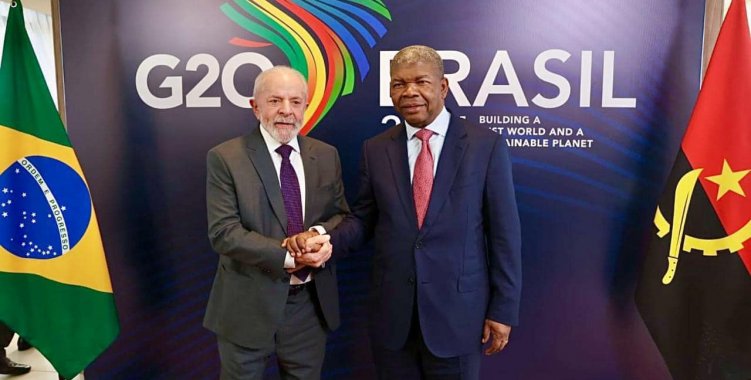João Lourenço was received in the Brazilian city of Rio de Janeiro one day before the start of the G20 summit, a group of the 20 largest economies in the world, chaired this year by Brazil, which invited Angola to be an observer member.
In a statement, the Brazilian presidency indicated that the two leaders discussed "support for the agricultural sector, especially family farming, and larger-scale production, with technical cooperation and in seeds".
According to data sent to Lusa by the Brazilian Ministry of Agriculture and Livestock, in the first eight months of the year Brazil exported around 232 million dollars (220 million euros) in agricultural products to Angola, 46 percent of which were meat and 42 percent were products derived from sugar cane.
This is a considerably higher figure than that recorded last year, when Angola, in the first eight months of 2023, purchased around 150 million dollars (142 million euros) in Brazilian agricultural products.
In addition, "the presidents also spoke about cooperation and attracting private investment for the construction of transmission lines for industrial regions and energy integration with Namibia and South Africa", the same note reads.
According to the Brazilian presidency, João Lourenço reinforced Angola's support for the three priorities of the Brazilian presidency of the G20, which ends on 30 November, followed by South Africa.
The Brazilian government's priorities for this G20 presidency are the fight against hunger, poverty and inequality, sustainable development and the reform of global governance, especially the UN Security Council and reforms of financial institutions such as the World Bank, the International Monetary Fund and the World Trade Organization (WTO).
The meetings on Monday and Tuesday in Rio de Janeiro will be chaired by the Brazilian head of state, Lula da Silva, the country that this year assumed the leadership of the group of the 20 largest economies in the world, which together account for around two thirds of the world's population, 85 percent of the Gross Domestic Product (GDP) and 75 percent of international trade.
In addition to representatives from the full member countries of the group, plus the European Union and the African Union, representatives from 55 countries or international organizations are expected, including Portugal – a country invited by Brazil – which will be represented by its Prime Minister, Luís Montenegro, Angola, represented by its President, João Lourenço, and the Community of Portuguese-Speaking Countries.
On Monday, the leaders of the G20 group and invited countries, including Angola and Portugal, will discuss joining a global alliance against hunger and reforms in international organizations in the Brazilian city of Rio de Janeiro.
The 'marvelous city' will host the first of two days of the G20 summit this Monday, chaired by the Brazilian head of state, Lula da Silva, the country that this year assumed the leadership of the group of the 20 largest economies in the world.
The G20 is made up of the world's largest economies: the United States, China, Germany, Russia, the United Kingdom, France, Japan, Italy, India, Brazil, South Africa, Saudi Arabia, Argentina, Australia, Canada, South Korea, Indonesia, Mexico, Turkey, and also the European Union and the African Union.







